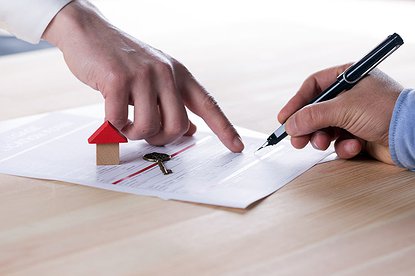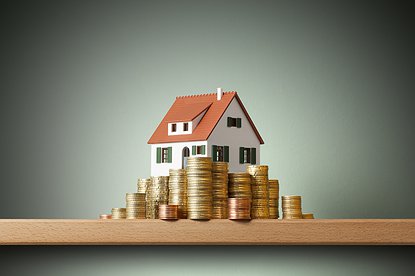Get Pre-Approved Now
Understanding the Basics of the Second Mortgage Loan

Use the Code Below to Embed this Infographic into Your Website!
To put things simply, a second mortgage is a loan taken out on an already-mortgaged property through the same or a different lender. Not everyone will qualify for second mortgage, primarily because the lender assumes a great deal of risk - even when offering second mortgages to clients with high credit scores.
When Do People Take Out Second Mortgages?
Most of the time, the only reason a homeowner takes out a second mortgage is to consolidate debt. It is worth noting that the interest rates associated with these second loans are higher than those associated with the initial loan are. However, for people who have good credit, consolidating high-interest credit card debt, car leases, and other unsecured lines of credit is a great idea, and depending on the amount of debt they have to consolidate, they could save hundreds of dollars per month.
Who Qualifies for Second Mortgages?
Individuals who have good credit and more than 20% equity in their homes (the difference between the fair market value of the home and the outstanding balance of the first mortgage) often qualify for lines of credit known as home equity loans. These have lower interest rates than traditional mortgages, so they are easier to repay. Conversely, individuals who have poor credit scores and very little equity in their homes will likely need to seek private lenders if they need second loans; traditional lenders view these things as significant risk factors.
What Do Traditional Lenders Want to See?
When you ask a traditional lender for a second mortgage, it is usually best to ask the same lender that provided the first loan. They will first check your credit score, and then they will evaluate the equity in your home. Other than these two crucial qualifiers, lenders also make sure that you have a dependable source of income, from an employer or a settlement of some kind, and that you have sufficient property to claim as collateral in the event that you cannot repay your debt.
What Are the Requirements for Private Lenders?
If you have a poor credit score or very little equity in your home but you still need a second mortgage, you might qualify for a private loan. Some limitations apply, though. For instance, if you have a collateral-based mortgage, which means that the first lender has the rights to all of your equity in the event that you default on your payments, it is almost impossible for another lender to provide you with a second loan because there is no collateral left. If this is the case, you might opt to hire an experienced mortgage broker. Although there is a fee for this service, a broker can help you find the right avenue to get you the funding you need.
Second mortgages in Barrie are available, and for the most part, your credit and your home equity will determine whether you qualify for them. Although it is much more difficult for you to get a private second mortgage, some lenders consider other factors and collateral other than your home or property.



